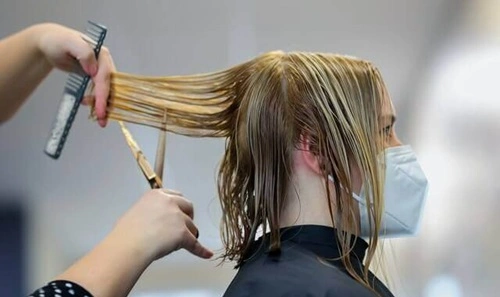Yes, cutting someone’s hair without their permission is illegal in most circumstances. It can be classified as assault, battery, or harassment under U.S. laws, depending on the specific situation and intent behind the act. Unauthorized hair cutting infringes on personal autonomy and can lead to both civil and criminal penalties for the offender.
Legal Implications of Cutting Hair Without Consent
1. Assault and Battery
- Definition of Battery: In many jurisdictions, battery is defined as the intentional and unwanted physical contact with another person that causes harm or offense. Cutting someone’s hair without permission qualifies as physical contact and could be prosecuted as battery.
- Assault: If someone threatens to cut another person’s hair and creates fear of immediate harm, it can be considered assault, even if no physical act occurs.
- Example: A school prank involving cutting a classmate’s hair without consent can lead to assault and battery charges.
2. Harassment
Unauthorized hair cutting may also constitute harassment, particularly if it is part of a pattern of behavior intended to intimidate, degrade, or control another person.
3. Cultural and Religious Implications
For individuals from cultures or religions where hair holds significant symbolic value, unauthorized hair cutting can be viewed as a form of discrimination or hate crime. Laws like Title VII of the Civil Rights Act of 1964 protect against discrimination based on religion or national origin.
4. Child Abuse
Cutting a child’s hair without parental consent or in a manner intended to punish or humiliate the child could lead to accusations of child abuse under state laws.
Civil and Criminal Penalties
1. Criminal Charges: The offender can face charges of assault, battery, or harassment, depending on the intent and circumstances. Penalties may include fines, community service, or jail time.
2. Civil Lawsuits: Victims may file a civil lawsuit for damages, including compensation for emotional distress, humiliation, and any physical harm caused by the act.
3. Protective Orders: If the act is part of ongoing harassment or abuse, victims may seek restraining orders against the perpetrator.
Situational Examples
1. Barbershop/Salon Incidents
- If a hairstylist cuts a customer’s hair without their consent or exceeds agreed-upon instructions, the customer may sue for damages.
- Professionals who operate without a valid license may face additional penalties under state cosmetology regulations.
2. School Pranks or Bullying
In school settings, unauthorized hair cutting as a prank or form of bullying can result in disciplinary actions and potential legal charges against the perpetrators.
3. Domestic or Workplace Conflicts
Cutting a partner’s or coworker’s hair without consent can escalate into legal disputes, particularly if the act is part of abusive or retaliatory behavior.
Exceptions and Gray Areas
1. Parental Authority
Parents or guardians generally have the right to decide on haircuts for their minor children. However, disputes between divorced or separated parents over a child’s haircut could lead to legal conflicts.
2. Emergency Situations
Cutting someone’s hair in an emergency (e.g., to remove tangled material causing harm) may not be deemed illegal if done to protect their safety or health.
How to Address Unauthorized Hair Cutting
1. Report the Incident: Victims should document the event and report it to authorities, especially if the act was part of harassment or abuse.
2. Seek Legal Action: Depending on the circumstances, victims may file criminal charges or civil lawsuits. Consulting an attorney is advisable to explore available legal remedies.
3. File Complaints for Licensed Professionals: If the incident occurred in a salon or barbershop, victims can file a complaint with the state’s cosmetology licensing board.
Related FAQs
Q1. Can I sue someone for cutting my hair without permission?
Ans: Yes, you can file a civil lawsuit for damages, including emotional distress and any physical harm caused by the unauthorized haircut.
Q2. Is cutting someone’s hair a form of assault?
Ans: Yes, cutting someone’s hair without their consent can be classified as assault and battery under the law.
Q3. Can parents cut their child’s hair without the child’s consent?
Ans: Generally, yes, parents or guardians have the right to make decisions about their minor child’s hairstyle.
Q4. What should I do if someone cuts my hair without my permission?
- Document the incident.
- Report the act to local law enforcement if it involved force or harassment.
- Consult an attorney for potential legal action.
Q5. Can I press charges if someone cuts my hair as a prank?
Ans: Yes, even if intended as a prank, unauthorized hair cutting is a violation of personal autonomy and can result in criminal charges or civil liability.
In conclusion, Cutting someone’s hair without their consent is generally illegal and can lead to assault, battery, or harassment charges. Whether the act occurs in a domestic, school, or professional setting, it violates personal boundaries and may carry significant legal consequences. Individuals who experience unauthorized hair cutting should report the incident and consider legal action to protect their rights.


